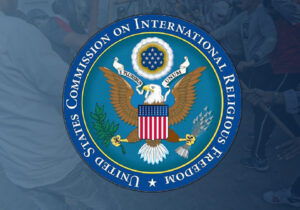India holds the distinction of having just held the largest election in the democratic world, boasting 643 million voters. In this election, the popular Prime Minister Narendra Modi was re-elected for a third term. But while his Bharatiya Janata Party (BJP) party held on to a clear majority, many were shocked to see Modi’s party lose its overwhelming majority and mandate.
The reasons for the outcome are complex and scholars will try to sift through the motivations of voters. Providence’s own Mark Tooley has done a great service by analyzing the BJP’s lackluster showing as a push towards greater religious tolerance and pluralism against Modi’s sometimes heavy-handed Hindu nationalism.
America, as the world’s oldest democracy, has two conclusions to learn from India, the world’s largest democracy:
One is that, for all the frustrations and inefficiencies written into the DNA of democratic politics, it is still the best form of government in existence because it allows imperfect human beings to make mistakes, correct, improve, and adapt without bloody civil war. The sheer scale of India’s election is astounding. Each individual Indian voter has participated in an act of national self-determination that will change the course of their nation. It is an expression of the importance of national identity and membership in a society tied to a physical, particular place in the world.
This means that Americans–– while having ample reasons to be frustrated with our own democratic republic, the weaponization of the courts, uneven application of justice, and our bloated, unaccountable bureaucracy—we, the American people, can amend, restore, and conserve our own founding republican principles. Democratic self-government rooted in constitutionalism remains a good gift worth stewarding and defending.
The second big lesson is that our government must trust our partners in the democratic world with their own domestic challenges and focus on mutually beneficial cooperation toward the security and prosperity of American citizens. Indians do not need socially and politically progressive State Department bureaucrats chiding them when their government does not meet the standards of Westerners.
President Joe Biden recently showed a tremendous lack of appreciation for both these lessons when he recently chided India. He said, “Why is China stalling so badly economically? Why is Japan having trouble? Why is Russia? Why is India? Because they’re xenophobic.”
Rahm Emanuel, former Chief of Staff to President Obama and now Ambassador to Japan, was similarly wrong when he strongly chided the Japanese for not legally recognizing same-sex marriage, among other LGBTQ issues.
India and Japan are vital to American interests. Japan is a stalwart treaty ally and India is a blossoming vital partner. Both nations are culturally conservative, with rich and complex traditions alongside democratic systems of governance. Lumping in Tokyo and New Delhi with two of the United States’s authoritarian adversaries is wrong and nonsensical.
Moreover, what President Biden and today’s most ideologically motivated leftists fail to grasp is that border controls are a vital function of any government because they give definition to physically embodied nations. Restrictions on who enters a nation, at what scale, and for what purpose, do not make a democracy “xenophobic.” The United States and Western Europe are reeling from a flood of migrants, failing to assimilate newcomers to the basic civic virtue and patriotism necessary for pluralistic societies. While Japan’s economy is slumping, there are many causes unrelated to its immigration policies. And India, as the world’s fastest-growing large economy, is an invaluable partner for America in the 21st century.
But even without reference to America’s need for dependable international partners, nations should not be thought of as borderless zones defined primarily by economic interests. When Biden criticizes the “xenophobia” of partner nations as economically misguided, he displays the neoliberal mindset which values economic progress über alles. Nations are physical places that are necessarily exclusivist on some level because not everyone can inhabit the same geographic location and imbibe the same culture at once. Nations are where human beings share ideas, cultures, and habits while building communities together characterized by their collective idiosyncrasies. Nationhood is a divinely ordained institution, God having shown his love for the world first through the nation of Israel and then to the “gentiles,” also translatable from Hebrew as “the nations.”
Biden’s “xenophobic” insult reveals that progressive priorities are getting in the way of our country’s foremost duty: safeguarding the security and national interest of Americans. The United States needs as many friends and partners as possible to compete with, confront, and deter our adversaries. Japan and India are both vital for any strategy to thwart the Chinese Communist Party’s aim of establishing hegemony over Asia and supplanting the United States as the most influential force in global affairs.
But what kind of influence does the CCP seek?
Despite what some experts might imply, there is no global rules-based system operating collectively and harmoniously to enforce shared values among the international community. The United Nations does not impose international law and the International Criminal Court does not have final adjudication between nations. The rules for international commerce and behavioral norms in global commons like the ocean and outer space are determined by the most powerful countries and enforced via military and economic power.
The so-called ‘rules-based order’ would be described more accurately as the US-led order. As we commemorate the heroism of the Allies on D-Day, we should remember it was they who built the post-WWII international order. And, owing to their noble defense of nations and liberty against borderless imperialism, the US has been the world’s foremost actor for good. Washington, with its numerous wealthy, free and democratic allies, has enforced this open system through military and economic might, benefitting the entire world and Americans most of all.
With China and Russia’s new alliance, the US faces an authoritarian axis that resents the West and is undermining the United States and its allies through military coercion, explicit aggression, intellectual property theft, and mercantilism. If Washington is going to compete with and contest these authoritarian adversaries, it must use every ounce of diplomatic capital with even the most reluctant potential partners— those who, despite some differences, still largely prefer American preeminence over the prospect of a world ever more dominated by China and Russia.
India is not a Western-style liberal democracy and does not share all of the same positive and negative attributes of America’s now centuries-old system of government. But its population of 1.4 billion, openness to deepening ties with the United States, and commitment to dynamic democratic governance make it invaluable to the United States. When speaking at the Hudson Institute, a think tank in Washington, DC, Indian External Affairs Minister Subrahmanyam Jaishankar said that “India is non-Western” but “not anti-Western.” It’s a helpful framing to keep in mind.
A careful, principled American grand strategy that seeks to protect the American people and preserve the US-led order would respect the sovereignty of its allies and partners, saving its public condemnations for its adversaries.






